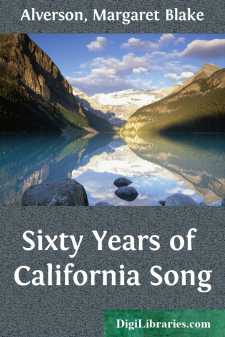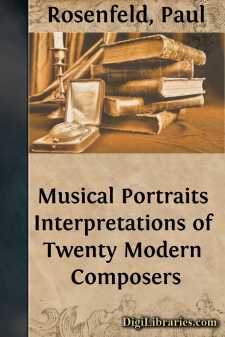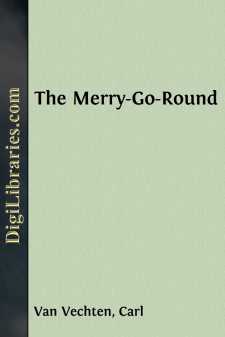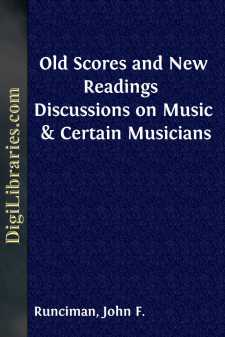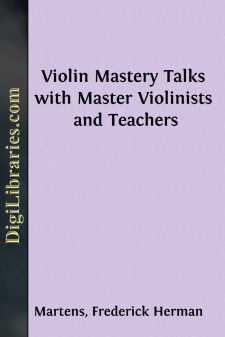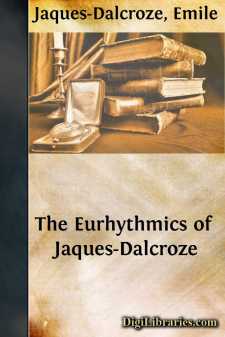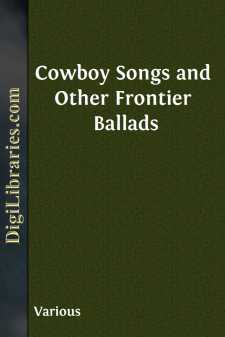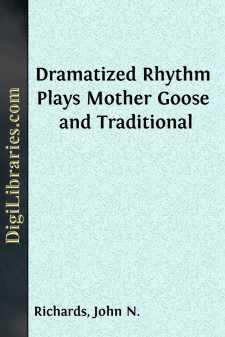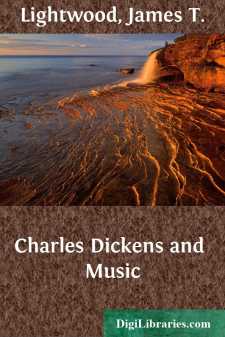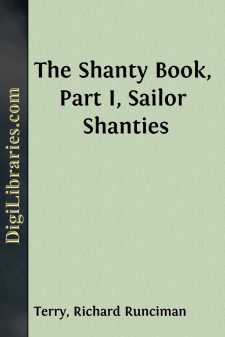Music
Music Books
Sort by:
CHAPTER ONE ANTECEDENTS AND CHILDHOOD S FAR back as I can remember my life was associated with music. Father and mother were both highly gifted. In our family were three boys and seven girls, and each possessed a voice of unusual excellence. The looked-for pleasure every day was the morning and evening worship at which the family gathered in the sitting room to hear the word of God explained by my...
more...
by:
Paul Rosenfeld
Wagner Wagner's music, more than any other, is the sign and symbol of the nineteenth century. The men to whom it was disclosed, and who first sought to refuse, and then accepted it, passionately, without reservations, found in it their truth. It came to their ears as the sound of their own voices. It was the common, the universal tongue. Not alone on Germany, not alone on Europe, but on every...
more...
by:
Carl Van Vechten
In Defence of Bad Taste In America, where men are supposed to know nothing about matters of taste and where women have their dresses planned for them, the household decorator has become an important factor in domestic life. Out of an even hundred rich men how many can say that they have had anything to do with the selection or arrangement of the furnishings for their homes? In theatre programs these...
more...
by:
John F. Runciman
Many years ago, in the essay which is set second in this collection, I wrote (speaking of the early English composers) that "at length the first great wave of music culminated in the works of Tallis and Byrde ... Byrde is infinitely greater than Tallis, and seems worthy indeed to stand beside Palestrina." Generally one modifies one's opinions as one grows older; very often it is necessary...
more...
EUGÈNE YSAYE THE TOOLS OF VIOLIN MASTERY Who is there among contemporary masters of the violin whose name stands for more at the present time than that of the great Belgian artist, his "extraordinary temperamental power as an interpreter" enhanced by a hundred and one special gifts of tone and technic, gifts often alluded to by his admiring colleagues? For Ysaye is the greatest exponent of...
more...
THE EDUCATIONAL SIGNIFICANCE OF HELLERAU At Hellerau two things make an ineffaceable impression upon the mind—the exquisite beauty of movement, of gesture and of grouping seen in the exercises; and the nearness of a great force, fundamental to the arts and expressing itself in the rhythm to which they attain. Jaques-Dalcroze has re-opened a door which has long been closed. He has rediscovered one of...
more...
by:
Various
INTRODUCTION It is now four or five years since my attention was called to the collection of native American ballads from the Southwest, already begun by Professor Lomax. At that time, he seemed hardly to appreciate their full value and importance. To my colleague, Professor G.L. Kittredge, probably the most eminent authority on folk-song in America, this value and importance appeared as indubitable as...
more...
by:
John N. Richards
PREFACE The following rhythmic plays compiled by Mr. John N. Richards of the Newark Department of Physical Education have been devised to meet the needs in the transition of Physical Education activities between the kindergarten and the first few years of the primary school. The physiologist tells us that the nervous organism of early childhood is injured by the strain of strict, immobile attention...
more...
CHAPTER I The attempts to instil the elements of music into Charles Dickens when he was a small boy do not appear to have been attended with success. Mr. Kitton tells us that he learnt the piano during his school days, but his master gave him up in despair. Mr. Bowden, an old schoolfellow of the novelist's when he was at Wellington House Academy, in Hampstead Road, says that music used to be...
more...
APOLOGIA IT may reasonably be asked by what authority a mere landsman publishes a book on a nautical subject. I may, therefore, plead in extenuation that I have all my life been closely connected with seafaring matters, especially during childhood and youth, and have literally 'grown up with' shanties. My maternal ancestors followed the sea as far back as the family history can be traced, and...
more...


